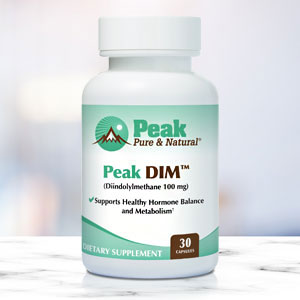Get Easy Health Digest™ in your inbox and don’t miss a thing when you subscribe today. Plus, get the free bonus report, Mother Nature’s Tips, Tricks and Remedies for Cholesterol, Blood Pressure & Blood Sugar as my way of saying welcome to the community!
The strange sign women get their health is headed for trouble

As if being a woman isn’t hard enough, women have a serious disadvantage when it comes to aging…
They’re much more likely to develop physical limitations and disability with age than men. And scientists have no clue why.
So, ladies, as you get older, stay extra vigilant about those healthy habits that increase your odds of staying physically strong and mobile in old age, like eating well and exercising.
But you should also watch out for this one warning sign that your physical abilities are on the downward slide…
Urinary incontinence.
Bladder leaks are bad news for your strength and mobility
Urinary incontinence is common in women as they age. About 25 percent of women over 60 have incontinence issues. But a new study shows this all-too-common problem could signal that serious physical repercussions lie ahead.
Researchers from the University of Hawaii at Mānoa recently found that women who struggle with incontinence are more likely to experience a steep decline in their physical abilities in the years to come.
The study included 900 women in their 60s and 70s. These women completed a health questionnaire that asked them how many urine leaks they’d experienced in the past week. They also participated in a physical function test, which measured walking pace, balance and how fast they could stand up from a chair. Two years later they took the physical function test again…
Within two years, women with bladder issues lost a shocking amount of their physical function… much more than women without bladder leaks.
Why would bladder leaks have anything to do with physical strength and stability?
Here’s one theory…
Women who have incontinence may exercise less because they fear bladder accidents. This creates a vicious cycle. By avoiding exercise, incontinence gets worse (because exercise strengthens muscles that help with bladder control). And the worse the incontinence gets, the more women avoid exercise.
How to keep bladder leaks from making you weak
There are a couple of things you can do to prevent your bladder leaks from taking a toll on your physical abilities…
The first is to keep exercising no matter what’s happening with your bladder. Work out at home if you feel more comfortable. Just make sure to keep moving and sweating for the sake of your mobility.
Of course, if you want to continue working out in a gym or a class, don’t let bladder leaks stop you. Instead, buy a pair of triathlon shorts. They not only offer compression (which supports the muscles, nerves, and tissues around the bladder), but they have a small pad to soak up leaks. They look like any old pair of workout shorts, so they’re discreet. And they’re easy to wear under other workout clothing if the bike short look isn’t up your alley.
Besides exercising your body, there’s one more thing you can do to improve your situation…
Exercise your bladder.
Pelvic floor exercises are proven to alleviate bladder issues. All you have to do is squeeze the muscles in your pelvic floor (the muscles you use when you’re trying to hold back your urine) and clench them for a few seconds. Do this 10 to 15 times in a row.
If you practice daily, you should have better bladder control. And as an added bonus, you should have stronger orgasms too. What more incentive do you need?
Editor’s note: Did you know that when you take your body from acid to alkaline you can boost your energy, lose weight, soothe digestion, avoid illness and achieve wellness? Click here to discover The Alkaline Secret to Ultimate Vitality and revive your life today!
Sources:
- Health declines are more rapid in older women with urinary incontinence — MedicalXpress
- Urinary Incontinence Is Associated With Physical Performance Decline in Community-Dwelling Older Women: Results From the International Mobility in Aging Study — Journal of Aging and Health
- The effect of pelvic floor muscle contraction on detrusor overactivity pressure in neurogenic and non-neurogenic women during urodynamic study: a cross-sectional study — American Journal of Physical Medicine & Rehabilitation
- Exercising With Stress Incontinence — Everyday Health
- What are pelvic floor exercises? — National Health Service














